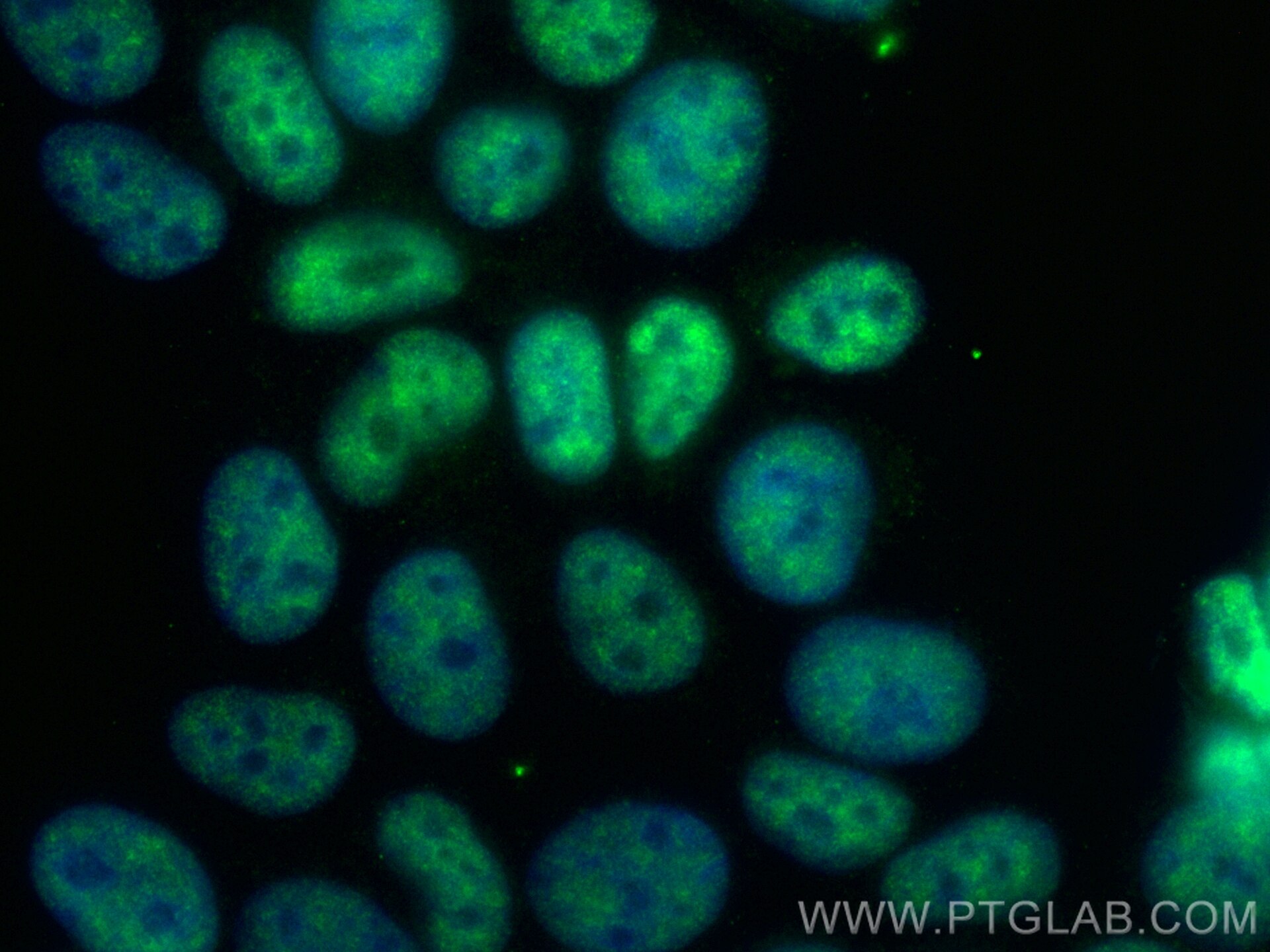Tested Applications
| Positive IF/ICC detected in | MCF-7 cells |
Recommended dilution
| Application | Dilution |
|---|---|
| Immunofluorescence (IF)/ICC | IF/ICC : 1:50-1:500 |
| It is recommended that this reagent should be titrated in each testing system to obtain optimal results. | |
| Sample-dependent, Check data in validation data gallery. | |
Product Information
CL488-83914 targets CRNKL1 in IF/ICC applications and shows reactivity with human samples.
| Tested Reactivity | human |
| Host / Isotype | Rabbit / IgG |
| Class | Recombinant |
| Type | Antibody |
| Immunogen | Peptide Predict reactive species |
| Full Name | crooked neck pre-mRNA splicing factor-like 1 (Drosophila) |
| Calculated Molecular Weight | 100 kDa |
| GenBank Accession Number | NM_016652 |
| Gene Symbol | CRNKL1 |
| Gene ID (NCBI) | 51340 |
| RRID | AB_3673325 |
| Conjugate | CoraLite® Plus 488 Fluorescent Dye |
| Excitation/Emission Maxima Wavelengths | 493 nm / 522 nm |
| Form | Liquid |
| Purification Method | Protein A purification |
| UNIPROT ID | Q9BZJ0 |
| Storage Buffer | PBS with 50% Glycerol, 0.05% Proclin300, 0.5% BSA, pH 7.3. |
| Storage Conditions | Store at -20°C. Avoid exposure to light. Stable for one year after shipment. Aliquoting is unnecessary for -20oC storage. |
Background Information
CRNKL1 (Crooked Neck Pre-MRNA Splicing Factor 1) is involved in pre-mRNA splicing process. As a component of the minor spliceosome, it's involved in the splicing of U12-type introns in pre-mRNAs. It's reported that CRNKL1 is a nuclear retention factor of the HIV-1 unspliced RNA and a selective regulator of cytoplasmic levels of a subset of intron-retaining cellular mRNAs.(PMID: 33468685)
Protocols
| Product Specific Protocols | |
|---|---|
| IF protocol for CL Plus 488 CRNKL1 antibody CL488-83914 | Download protocol |
| Standard Protocols | |
|---|---|
| Click here to view our Standard Protocols |



